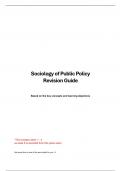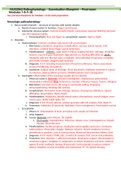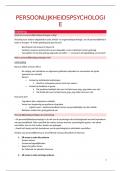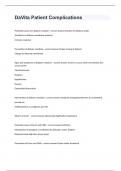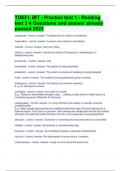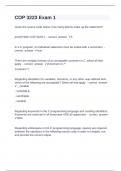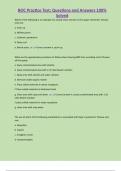Samenvatting
Summary Revision Guide Sociology of Public Policy (AY) UvA
- Vak
- Instelling
A revision guide composed of all the key concepts as specified by the teacher. In just over 30 pages, all key concepts are defined and linked to each other where necessary. This guide is ideal for students in the course Sociology of Public Policy at the University of Amsterdam sociology program. ...
[Meer zien]
